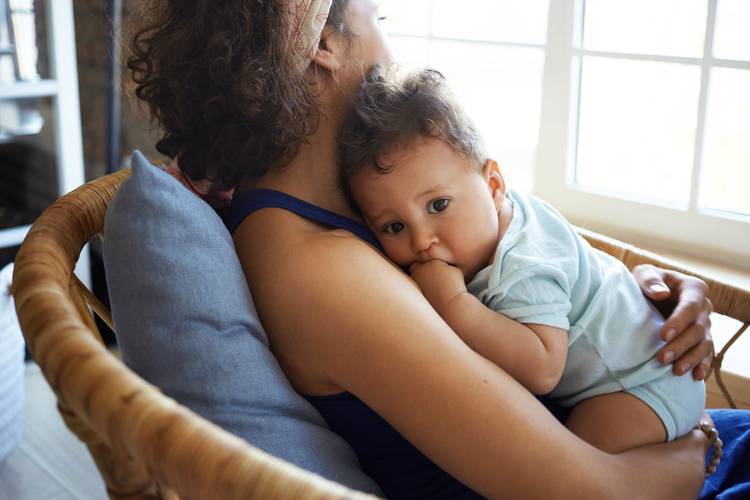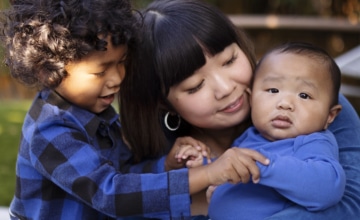Wondering means intentionally bringing an attitude of openness and curiosity to the experiences we have with our children—even the challenging ones.
Babies and young children seek to understand the world. They are careful observers and like to wonder why, and how, and what if. As adults, we often forget our sense of wonder. Fueled by time pressure and stress, we want to cut to the chase. Solve a problem. Move on. As parents, we often immediately choose one path without pausing to wonder whether it’s the right one or whether it’s truly working.
We can be quick to make judgments when we feel the stress of figuring out what our child is trying to tell us, why they are upset, or what they need. Sometimes we feel doubt, frustration, and even anger when our children act in a way that challenges us. We also make judgments about our responses toward our children or our skills as parents. These judgments can make it difficult to see and feel the wonder and delight of discovery and connection.
One strategy to help us become more responsive parents is to replace judgment with wondering. Wondering means intentionally bringing an attitude of openness and curiosity to the experiences we have with our children – even the challenging ones. We can notice when we are moving quickly to judgment or feeling pressure to have THE answer. We can allow some time for wondering instead.
Practicing wondering helps us change our attitude, our assumptions and even our parenting actions in positive ways. Wondering can help us recognize there are many possible explanations for a behavior and open our eyes to different ways of responding. Wondering helps us discover our unique and special child.
Here’s how to get started.
- Slow down. Breathe slowly and deeply. It’s easier to think openly when we are not rushing.
- Look closely and listen carefully to what’s actually happening. Notice what this careful observation tells you about your child’s emotions. Notice how you are feeling yourself.
- Frame your thinking about your child’s behavior by using wondering statements:
I wonder if…he’s feeling scared about going back to child care
I wonder why…she’s starting to wake up at night
I wonder how…he’s feeling about Grandma leaving after a two-month visit
You can also practice wondering by trying this reflection exercise.
- Write down a judgment you sometimes make about your child (or your parenting). Daniel always throws tantrums to get his way or I never have enough patience. Read it aloud and notice how you feel inside.
- Then, turn that judgment statement into three different wondering statements. I wonder if Daniel tantrums more when he is tired. I wonder how I can help Daniel learn to express his frustration in more acceptable ways. I wonder how I can let Daniel know I’m there for him when he’s upset. Now read the wondering statements aloud and notice how you feel inside. You may feel calmer, more peaceful, and more compassionate.
When we practice reflective wondering, it helps us remember to bring an open and curious attitude into our daily activities of parenting.
Remember, children’s behaviors are always related to their feelings, needs, and desires. Replacing judgment with wondering gives us an opportunity to learn and understand our children more deeply. With a deeper understanding comes a stronger bond—a gift to both parent and child.



